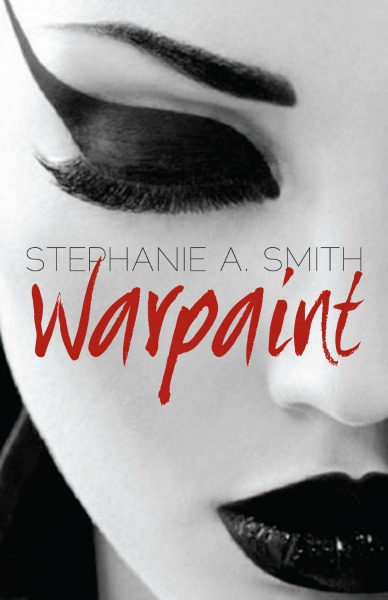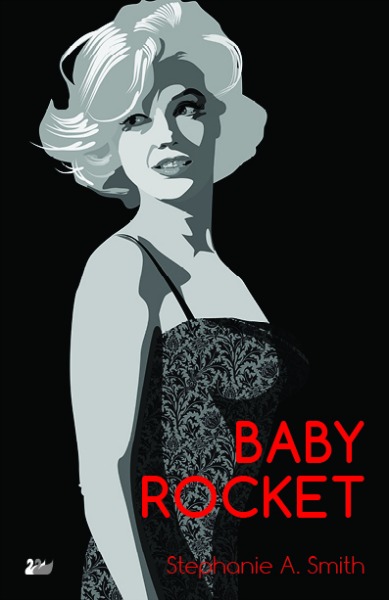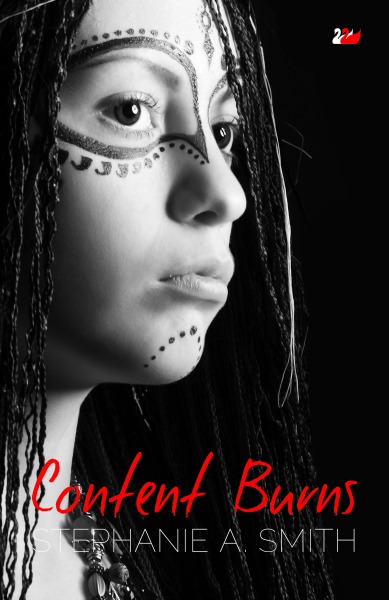Stephanie A. Smith
Stephanie A. Smith took her PhD from Berkeley (1990). Prior to UF, she free-lanced, worked as an editor for Western Imprints, as an assistant at Glamour and Mademoiselle magazines, at David Godine in Boston, and at Representations and is presently a consultant for Feminist Studies. A novelist, she is the author of: The Warpaint Trilogy, Warpaint (2012), Baby Rocket (2013) and Content Burns (2014) (Thames River Press in London); Other Nature (1995), The-Boy-Who-Was-Thrown-Away (1987) and Snow-Eyes (1985) and has won multiple fiction residencies at the Martha’s Vineyard Writer’s Residency in the Noepe Center for the Arts, Hedgebrook, Norcroft, Provincetown and Dorland.
Examining the intersection of science, literature, politics, race and gender, her essays appear in such journals as differences, Criticism, Genders, American Literature and American Literary History. A 1998 Visiting NEH Scholar at UCLA, she is the author of Conceived By Liberty: Maternal Figures and 19th-Century American Literature (Cornell 1995.) Excerpts from her new book, Household Words: bloomers, sucker, bombshell, scab, nigger, cyber (University of Minnesota 2006) appeared in Body Politcs and the Fictional Double and The Cambridge Companion to Women’s Writing. Her essay “Genetics” appears in Glossalalia: An Alphabet of Critical Keywords (University of Edinburgh Press, 2003). Currently, she is finishing a new critical book about aesthetics and the publishing industry in the United States, titled The Muse and The Marketplace, a chapter of which, “Union Blues: Melville’s Poetic In(ter)ventions,” will appear in the Duke journal Genre in 2013; she is also finishing a new novel, Strange Grace, as well as working on several other projects, in both criticism and fiction.
Examining the intersection of science, literature, politics, race and gender, her essays appear in such journals as differences, Criticism, Genders, American Literature and American Literary History. A 1998 Visiting NEH Scholar at UCLA, she is the author of Conceived By Liberty: Maternal Figures and 19th-Century American Literature (Cornell 1995.) Excerpts from her new book, Household Words: bloomers, sucker, bombshell, scab, nigger, cyber (University of Minnesota 2006) appeared in Body Politcs and the Fictional Double and The Cambridge Companion to Women’s Writing. Her essay “Genetics” appears in Glossalalia: An Alphabet of Critical Keywords (University of Edinburgh Press, 2003). Currently, she is finishing a new critical book about aesthetics and the publishing industry in the United States, titled The Muse and The Marketplace, a chapter of which, “Union Blues: Melville’s Poetic In(ter)ventions,” will appear in the Duke journal Genre in 2013; she is also finishing a new novel, Strange Grace, as well as working on several other projects, in both criticism and fiction.
Warpaint
|
women's historical fiction
A haunting tale of friendship and rivalry between three women artists, who’ve known each other for years, who must come to terms with imminent mortality and artistic frustration: Liz Moore, born poor in Minnesota, fought her way to New York in the 1920s, but isn’t “discovered” until late in life; C.C. Davis, a well-to-do New Yorker is Moore’s only student, and rival, who, just after WWII achieves some small success, but feels, as she faces cancer in 2002, a failure; and Quiola Kerr, part Ojibwe, once C.C.’s lover, who is caught in the middle, and who, as a painter in the 21st century, has the most doubts about art’s value in an electronic world. In April 2002, all three meet a week before C.C.’s mastectomy at a MOMA retrospective for Liz Moore, but their reunion is tense. Still, they try to cope, until C.C. makes an unexpected and controversial choice, one which nearly breaks the bonds these three took so many decades to forge, and forces Quiola to try to confront Liz, who she believes deliberately sabotaged C.C.’s career. |
Baby Rocket
|
historical fiction
In 1966, a child is found abandoned in a rocket ride on Cape Canaveral. Traumatized, she could not speak when the police found her, only a few yards from her dead mother. So first responders called her “Baby Rocket.” As an adult, this child (Clementine “Lem” Dance) has no memory of this event. She only discovers her past when her adoptive father, James Walter Dance, Jr. has a fatal heart attack. Lem, a women’s historian who is writing a book about the Mercury 9, finds files while cleaning out her father’s apartment that he had been collecting in order to tell her the truth. Without him, she must piece together her story—why was she abandoned? What happened to her parents? How did her mother die? Who is her biological father? Doing so will take her from California back to the Tri-State area, where she now lives; to Florida, where she will find her mother's roots and her mother's life-story; and, finally, to Martha's Vineyard, where she will come to terms with what she can recall and what she has uncovered about the wrenching facts of her early years. |
Content Burns
|
historical fiction
“Content Burns” chronicles the parallel stories of two women from the same family who bear the same Puritan name, Content Burns, and who are separated by three centuries: One born a Pequot Indian, originally named Ásawanuw (Corn-silk), who converts and marries into the English Burns family in 1637, and one, nicknamed Cabbi, in modern-day New York. They are unknown to each other yet both women must learn how to survive an historical trauma that changed the course of American history, and their lives: the massacre of the Pequot tribe in 1637 and the loss of the Twin Towers on 9/11. |
Please share
















